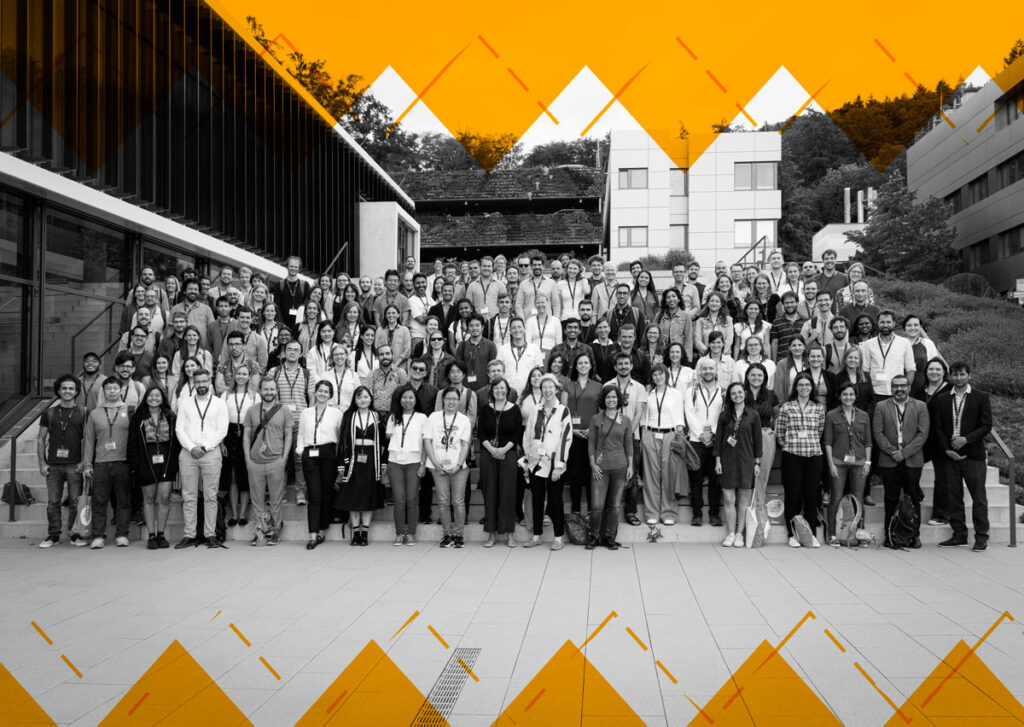2 May 2024 – At the Institute for Bioengineering of Catalonia in Barcelona, Spain, EMBO Postdoctoral Fellow Marija Matejčić discovered a world where biologists work hand in hand with engineers, physicists and optics experts – an environment that she found inspiring and creatively charged. But beyond the lab, Matejčić’s EMBO Fellowship played a pivotal role in her journey. Professional development trainings and leadership courses equipped her with essential tools for her career. The fellowship not only provided job security but became a profound support system, allowing Matejčić to focus on her research. “This makes you a better scientist ultimately,” she says.
Matejčić is one of thousands of early-career researchers who have benefited from the EMBO Fellowship Programme, which since its establishment in 1966 gives life scientists the opportunity to carry their research projects abroad for up to two years. Over time, the programme has risen as the EMBO flagship initiative, largely fulfilling its mission of supporting talented researchers in Europe and beyond.
The success of the EMBO Fellowship Programme is testified by the results of a recent survey that collected feedback from more than 3,500 life scientists. Current and former EMBO Fellows, along with their supervisors, agree on the programme’s value in contributing to scientific advancement, the survey revealed.
What’s more, recent improvements to the programme have led to a more equitable distribution of fellowships, further affirming the EMBO commitment to fostering research excellence.
Changing with the times
EMBO Postdoctoral Fellowships offer the opportunity to conduct research projects in laboratories worldwide to applicants from member states of the European Molecular Biology Conference (EMBC) – an intergovernmental organization that provides most of the funding for EMBO Programmes and activities. The fellowships are also available to applicants from non-EMBC Member States who seek postdoctoral training within an EMBC Member State.
The awards are granted to candidates who have demonstrated their potential to advance scientific knowledge through their doctoral research and publications in peer-reviewed journals. The evaluation process also considers the quality of the host laboratories and institutes to ensure that awardees receive top-notch training opportunities.
Several recent changes to the EMBO Fellowship Programme have led to increased fellowship opportunities for applicants across the globe. For example, the programme now accepts preprints with public in-depth peer reviews as equivalent to peer-reviewed publications, broadening eligibility criteria. And in 2020, EMBO introduced a contract system within EMBC Member States, whereby the EMBO Fellows receive their salary directly from the host institution. The transition from stipends to working contracts has improved social security for fellows.
In an effort to diversify the destinations of fellows, in 2022, EMBO launched the “increasing participation” initiative, which is ongoing until the end of 2024. Several measures – including a separate funding budget – support researchers moving to countries such as Poland, Slovenia and Türkiye plus eight more countries, which have traditionally hosted fewer fellows than other EMBC Member States.
EMBO has also been proactive in addressing the challenges posed by unforeseen circumstances. During the early stages of the COVID pandemic, EMBO was one of the first organizations to offer extensions to postdoctoral fellows to mitigate the impact of disrupted research activities.
Helping researchers to thrive
Since its inception, the EMBO Fellowship Programme has sought feedback from the life-science community. The most recent survey, which took place in 2021 and 2022, gathered insights from 634 current or former EMBO Postdoctoral Fellows, revealing the programme’s global reach and the impact of the fellowship on career trajectories.
The main reasons for junior researchers to apply for an EMBO Fellowship include the programme’s reputation, the opportunities for career progression, and the availability of appropriate funding, the survey revealed. Networking, soft-skills training, and mentorship opportunities were reported as additional factors for applying.
The survey also delved into the professional journey of current and former EMBO Fellows, revealing that nearly all respondents work in science-related fields – with the majority currently holding positions as postdoctoral researchers and 37% having advanced to Assistant/Associate Professors or Full Professors.
The recognition of the value of an EMBO Fellowship extends beyond the fellows themselves: host supervisors also acknowledge the benefits. A previous EMBO survey highlighted the positive impact of the fellowships on career progression, showing that most fellows have published – as first author or co-author – at least one research article based on their EMBO-funded project.
Further underscoring the programme’s impact, a substantial proportion of the EMBO Members elected in 2022 were former EMBO Fellows or had hosted EMBO Fellows in their labs. These findings align with the broader survey results, which underscore the programme’s ongoing success in nurturing excellence in the life sciences while creating an environment that allows fellows to thrive.



